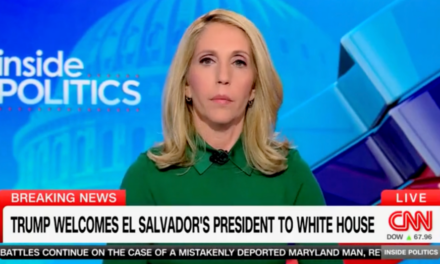In a significant move that has sent ripples through the tech industry and government sectors, multiple federal agencies in the United States have taken the decision to terminate their contracts with LinkedIn. The primary reason cited for these cancellations revolves around the platform’s approach to Diversity, Equity, and Inclusion (DEI). This unfolding situation has sparked discussions about corporate responsibility, the role of social media in employment practices, and the broader implications for tech companies in a politically charged environment.
The ramifications of these terminations highlight the increasing scrutiny placed on social networking platforms over their policies and practices concerning diversity and inclusion. In recent years, DEI initiatives have become a focal point for many organizations striving to foster inclusive workplaces. As federal agencies set their sights on these initiatives, they are holding companies accountable for how they implement them.
Details surrounding the cancellation of LinkedIn contracts reveal a growing dissatisfaction with the platform’s existing DEI policies. Several federal agencies, including the Departments of Labor, Education, and Health and Human Services, have voiced concerns that LinkedIn’s approaches are not sufficiently aligned with the government’s objectives of promoting equal employment opportunities across the board.
Federal officials pointed to instances where the hiring tools provided by LinkedIn may inadvertently reinforce bias, bringing a significant critique of the algorithms that drive job matching and recruitment processes. The criticisms center on potential disparities in how job listings are presented to users of different demographics and backgrounds. Some say that these disparities could unintentionally block marginalized groups from accessing job opportunities.
“As federal agencies that are dedicated to advancing equity for all Americans, we cannot partner with organizations that do not prioritize these values in their own practices,” stated one unnamed government official. “We need to ensure that our partnerships reflect our commitment to DEI, and that is simply not happening here.”
LinkedIn, owned by Microsoft, has been vocal about its commitment to enhancing diversity in hiring through various initiatives. However, the recent discontent among federal agencies suggests that these measures are falling short of expectations. This feedback may put pressure on LinkedIn to reevaluate its practices and policies to align them more closely with the urgent calls for genuine inclusivity from federal partners.
The termination of these contracts is also indicative of a wider trend wherein government entities are increasingly willing to take a stand against corporate practices that do not meet their standards. It presents an evolution in the relationship between federal agencies and the private sector, emphasizing the need for substantial accountability in corporate behavior.
As the conversation around DEI continues to evolve, the impact on tech companies, along with their partnerships with government entities, comes into sharp focus. Many tech firms, not just LinkedIn, are grappling with how best to implement effective DEI strategies that yield meaningful results. This reflects a growing realization that achieving true diversity and inclusion is an ongoing challenge that requires persistent effort over quick fixes.
The aftermath of these contract terminations may also have wider implications for the tech industry as a whole. Tech leaders are likely to be watching closely how LinkedIn responds to this situation, as it may set a precedent for other platforms that engage in similar DEI-related practices. Moreover, will other agencies follow suit, and what measures could they demand from their partners to ensure alignment with government policies on diversity and equity?
In light of the federal agencies’ decisions, some analysts predict that LinkedIn may need to overhaul its current DEI strategies. The platform, which is often viewed as a critical tool for job-seekers, may find that more rigorous standards surrounding diversity and inclusion will be necessary to restore confidence with both its users and government clients. LinkedIn could potentially pivot to introduce new features or improve existing ones, ensuring they contribute positively to the recruitment landscape.
Additionally, experts suggest that LinkedIn might face increasing pressure to disclose diversity-related metrics more transparently. By transparently sharing data about its hiring successes and the demographics of both its workforce and the job-seekers it serves, LinkedIn could reinforce its commitment to DEI in a more concrete manner, potentially reshaping public perception and approval.
Beyond the corporate implications, this controversy raises broader questions about how diversity and inclusion are fundamentally understood and implemented. It necessitates a discourse on what it truly means for organizations, particularly those serving as platforms for employment, to champion DEI initiatives. Federal agencies are signaling that they will no longer tolerate superficial commitments and are seeking those who embody actionable principles.
Private companies, alongside federal entities, are now being called upon to reflect on their policies— not just for compliance but as a critical component of their operational identities. The response to this call varies across sectors, with some organizations stepping up boldly and others still lagging behind.
The fact that federal agencies have gone public with their discontent and subsequent termination of LinkedIn contracts indicates a shift in power dynamics between government entities and tech companies. By prioritizing measurable outcomes over vague commitments, federal agencies are redefining their relationships with platforms and are likely encouraging a more competitive atmosphere where tech companies must demonstrate their dedication to DEI effectively.
As LinkedIn or any other widely-used platforms adapt to these developments, it raises the potential for a broader cultural shift within tech industries. The pressure for accountability may lead to an environment wherein all major companies prioritize inclusivity at every level of their operation—from hiring processes to product development—ultimately contributing to a more equitable job market.
In conclusion, the recent termination of LinkedIn contracts by federal agencies is not merely a corporate issue; it resonates deeply within the fabric of workplace equity and social justice. The ramifications of these actions could indeed serve as a turning point for tech companies, urging them to reevaluate their DEI efforts from the ground up. As calls for genuine commitment to diversity, equity, and inclusion grow louder across various sectors, it will be intriguing to observe how LinkedIn, along with other tech industry leaders, rise to meet these critical challenges and expectations moving forward.































